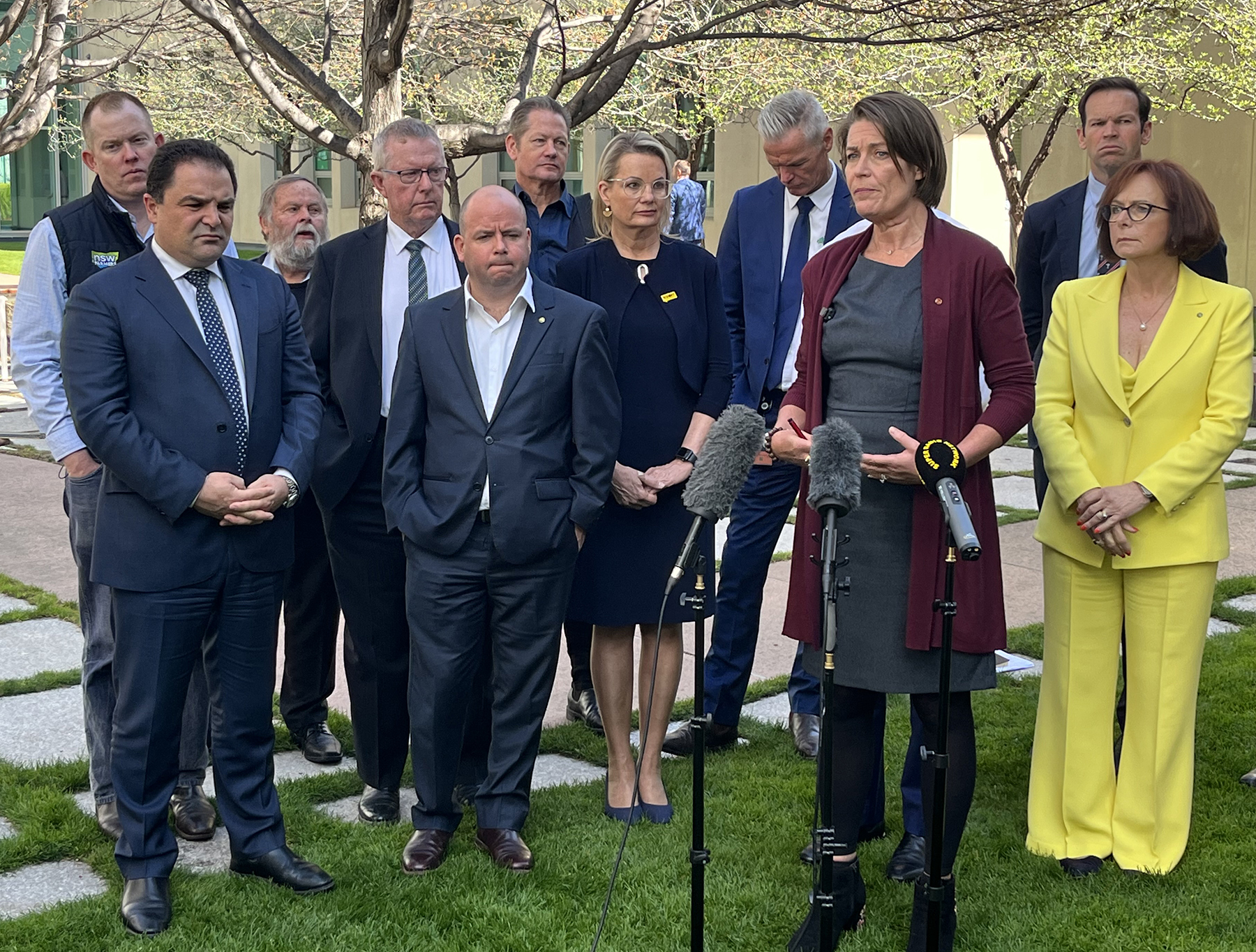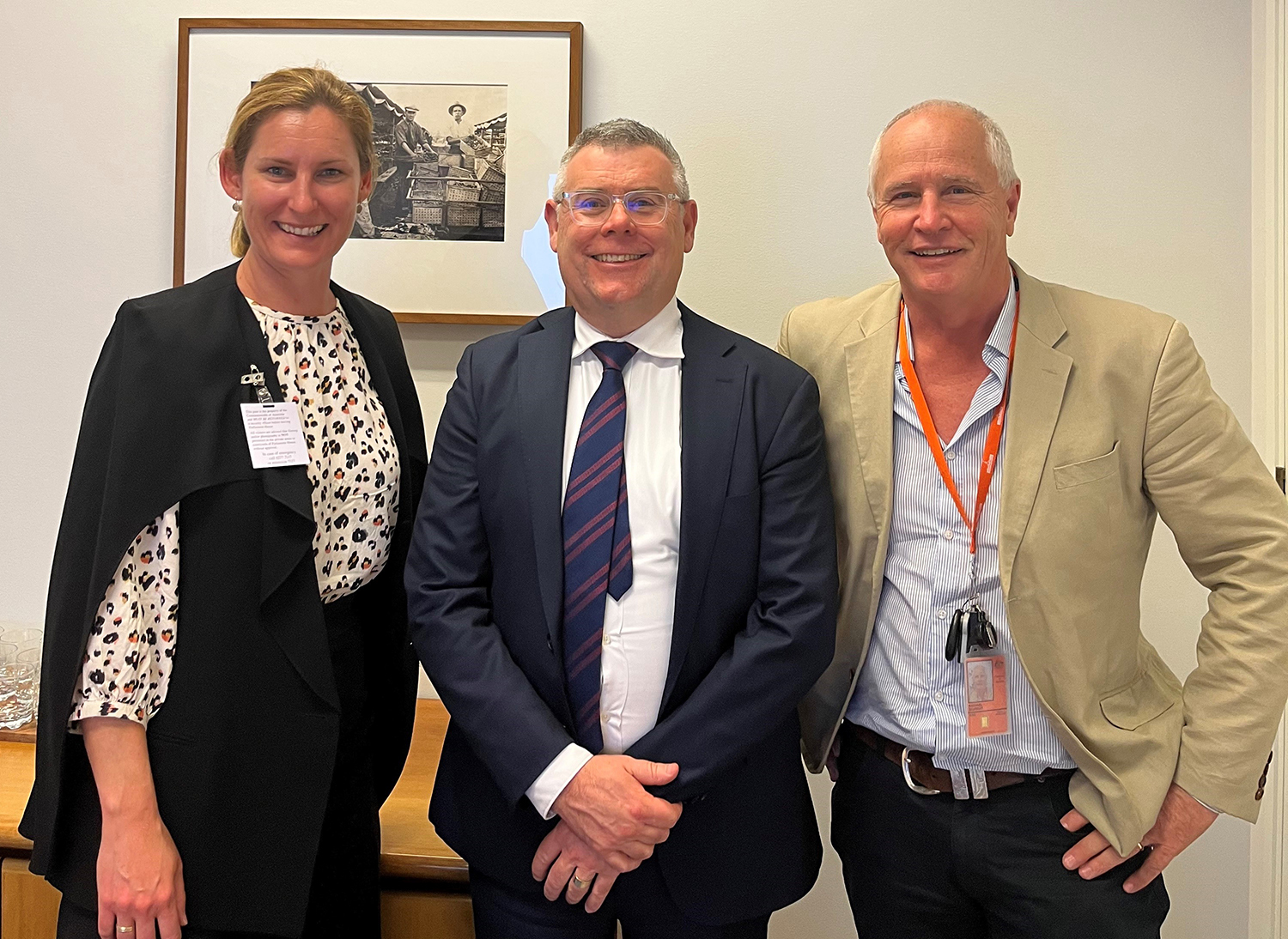Murray Darling Basin Plan takes political centre stage
Political and community debate over the past fortnight, particularly in rural and regional Australia, has been dominated by the decision by the Federal minister for water Tanya Plibersek to extend the timeframes for the Murray Darling Basin Plan and put water buybacks back on the agenda.
Yesterday (September 14) Cotton Australia's General Manager Michael Murray travelled to Canberra with irrigators and others from Ag for a roundtable with members of the Coalition who then held a media conference to discuss their opposition to the bill. He was asked to speak with media and advocated for growers on our concerns, particularly the damaging impact of water buybacks.

After the round table and media conference with the Coalition, Michael joined National Irrigators Council CEO Zara Lowien for a meeting with Minister Watt and his advisors, emphasising the impact on Ag production that would occur if the amendments went through.

While the decision to extend the timeframes on Sustainable Diversion Limit Adjustment Mechanism projects (605GL “Downwater”) is welcomed the overall announcement is particularly disappointing given Cotton Australia played a significant role in offering alternatives to water buybacks, at the invitation of the federal government, but chose to announce the return of buybacks seemingly before those alternatives were even considered.
Further to that, News Limited’s Bush Summit in Tamworth, an event attended by Minister Plibersek and the Prime Minister, made its opposition to buybacks clear.
So where does that leave us?
The water amendments are being debated in parliament propose to extend the timeframe to deliver the 605Gl SDLAM projects to 31-12-2026, and allow the introduction of new projects while removing the 1500Gl cap on buybacks.
The amendments change the socio-economic test for the 450Gl “Upwater”, so some or all could be acquired through buybacks and increase the reach of the water acquisition to include the Northern Basin.
The legislation is expected to pass through the Lower House without difficulty, as the government holds a majority, however the Senate is a different story as the Government will need the support of the Coalition (currently unlikely), the Greens (who at this point are saying they don’t support it) and at least two Independents.
The Senate has referred The Water Amendment (Restoring our Rivers) Bill 2023 to an Inquiry, which is due to report by November 8, 2023, suggesting the Senate will not have a final vote until it reports. However, CA has been advised that the Senate does not necessarily have to wait for the report before voting on the bill.
A further complication is that there is speculation that the outcome of The Voice referendum may have flow-on implications for this Bill and other legislation.
What does it mean?
It should be noted that a key element of this Bill, the extension of the SDLAM Supply projects (605Gl) “Upwater” is something irrigation bodies have called for. However, the removal of the 1,500gl Cap and the opening up of “buybacks” for the 450Gl water has always been opposed, and the 450Gl water recovery has mostly been assumed to be a southern basin issue.
If the Bill doesn’t get up there will be a reconciliation of the SDLAM supply projects in June, 2024, and that will find a shortfall in offsets of approximately 300Gl. The Minister could then step into the market and purchase towards that shortfall, but will eventually be limited by the 1,500Gl cap on buybacks (she could purchase approximately 272G, but she needs 49Gl of this to finalise the Bridging the Gap water tenders which closed in May).
There would remain some conjecture as to whether any of the 450Gl “Upwater” could be secured in the Northern Basin.
However, if the Bill does get up, there would be limited extra time for the SDLAM projects (although probably not enough time to secure the full 605Gl, and “buybacks will be immediately on the table, with no “protection from the 1,500Gl Cap.
As with all legislation debates, there may be some room for amendments, and may make the bill more palatable, but there also could be positions taken by parties and independents based on promises regarding other non-related legislation.
The Current Situation
All irrigation groups are considering the legislation, the various pathways through the Senate, and their preferred position.
We are working towards a clear and agreed path for the way forward and with good communication between the major representative bodies such as National Irrigator’s Council, National Farmers Federation and NSW Irrigators Council and their respective members, progress is expected soon.
